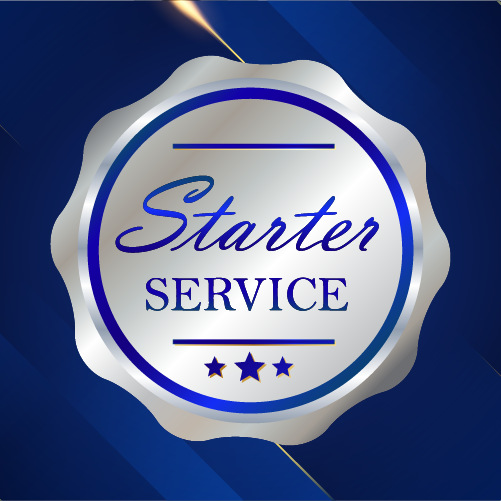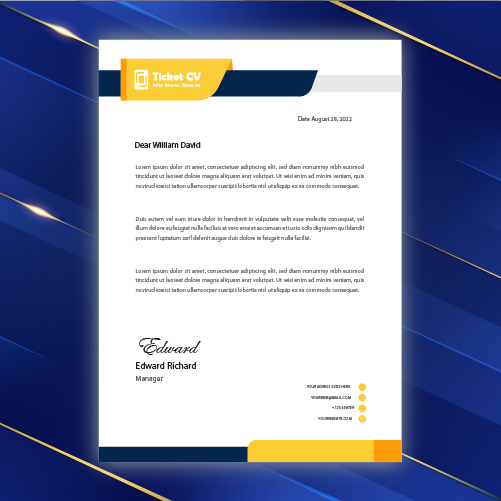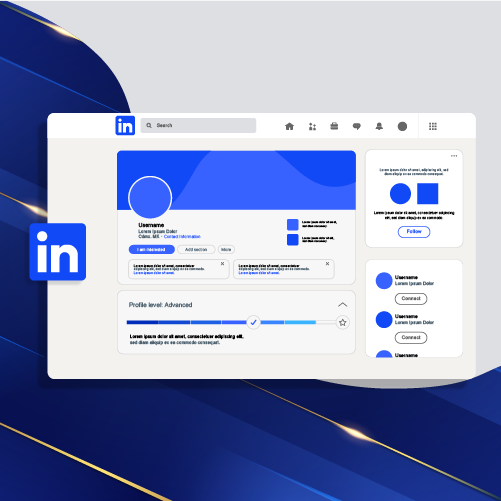To answer for question that do i need a resume if i have no experience, we have to understand the importance of resume for job seeker. Creating a resume without prior work experience can seem daunting, but it’s an essential tool for showcasing your skills, potential, and employment history to prospective employers. Even with no formal job history, a well-crafted resume and cover letter can highlight your education, volunteer work, extracurricular activities, relevant skills, and Ticket CV that make you a valuable candidate. This blog post delves into the importance of having a resume, cover letter, internship, and employment history despite lacking experience. It provides insightful tips on how to structure and tailor your resume (CV) to effectively market yourself in the absence of professional background.
Contents
ToggleUnderstanding the Importance of a Resume for Job Seekers with No Experience
Showcasing Potential and Skills
A resume (CV) is not just a record of your work history; it’s also a tool to highlight your potential and skills. /// Even if you have no prior professional experience, a well-crafted resume and cover letter can effectively demonstrate your capabilities. For instance, if you’ve been involved in extracurricular activities, volunteer work, or academic projects, or internship, these experiences can be showcased on your resume to illustrate relevant skills such as leadership, teamwork, communication, or problem-solving.
Crafting a compelling summary at the beginning of your resume allows you to emphasize what makes you an excellent candidate despite the lack of formal experience. /// By focusing on qualities like motivation, adaptability, and willingness to learn new things—employers are able to gauge whether you possess the essential attributes for success in an entry-level role.///
Highlighting Transferable Skills and Enthusiasm
When applying for jobs without prior experience or internship, employers often look for transferable skills that are applicable across various roles. These could include abilities such as time management, customer service orientation, proficiency in certain software applications or languages—skills that may have been acquired through school projects or personal interests. /// In addition to highlighting these transferable skills on your resume, it’s equally important to convey enthusiasm and passion for the industry or specific role you’re pursuing.
For example:
- Participating in group projects during college demonstrates collaboration and teamwork.
- Managing social media accounts for clubs showcases digital marketing skills.
- Completing coursework requiring research and analysis illustrates critical thinking abilities.
Employers recognize that individuals entering the workforce may not have direct job-related experience but value candidates who show initiative by seeking out opportunities where they can develop relevant competencies.
Structuring Your No-Experience Resume for Maximum Impact
Clear and Organized Format
When creating a resume with no relevant experience, it’s crucial to use a clear and organized format. This helps in effectively highlighting the key sections that compensate for the lack of work history. By structuring your resume in a visually appealing way, you can draw attention to other important aspects such as education, skills, and summary.
A well-organized resume enables recruiters to quickly grasp the essential information despite the absence of work experience. For instance, by placing your educational qualifications at the top of your resume followed by a section showcasing your relevant skills and abilities, you can immediately capture the reader’s attention.
Utilizing a template designed specifically for individuals with limited or no professional experience is also a great way to ensure that your resume is structured in an impactful manner. These templates often emphasize on transferable skills, volunteer experiences, internships (if any), and academic achievements.
Highlighting Key Sections Effectively
In lieu of relevant experience, prioritizing sections such as education, skills, and summary becomes paramount when structuring a no-experience resume. For example:
- Under “Education,” highlight any academic accomplishments or extracurricular activities that demonstrate leadership or teamwork.
- In the “Skills” section, focus on soft skills like communication, problem-solving abilities or technical proficiencies acquired through coursework or personal projects.
- Crafting an engaging “summary” at the beginning of your resume can also be instrumental in capturing the recruiter’s interest by providing them with insights into who you are as an individual beyond just professional experiences.
Highlighting Education and Skills When You Lack Job Experience
Showcasing Relevant Coursework and Certifications
When crafting a resume without job experience, it’s crucial to highlight relevant coursework, academic achievements, and certifications. For instance, if you’re applying for an entry-level marketing position but lack work history in the field, including details about marketing-related courses or workshops can demonstrate your theoretical knowledge and eagerness to learn. This provides recruiters with valuable insights into your capabilities despite the absence of practical experience.
Mentioning any industry-specific certifications or training programs can further bolster your qualifications. These credentials showcase a proactive approach to skill development and indicate that you possess the foundational knowledge required for the role. By strategically placing these educational accomplishments at the forefront of your resume, you effectively draw attention away from your limited work experience while underscoring your commitment to professional growth.
Highlighting Soft Skills in Your Resume
In lieu of substantial employment history, emphasizing soft skills is pivotal when constructing a no-experience resume. Soft skills such as communication, teamwork, adaptability, problem-solving abilities are highly sought after by employers across various industries. Even without prior work exposure, showcasing these skills illustrates your potential value as an employee.
For example:
- Instead of merely stating that you have excellent communication skills on your resume under the “Skills” section,
- Provide specific instances where you utilized these skills during group projects or extracurricular activities. This approach offers concrete evidence of how you’ve applied these soft skills outside a traditional work setting.
Moreover:
- If you’ve held leadership roles in student organizations or volunteer initiatives,
- Highlighting such experiences underscores traits like initiative and organizational aptitude.
Writing a Compelling Summary for Your Entry-Level Resume
Reflecting Career Goals and Passion
Crafting a resume summary is crucial when you lack job experience. It should reflect your career goals and passion for the industry. Use this section to express your enthusiasm and commitment to the role.
A well-written summary can compensate for limited experience by showcasing your eagerness to learn and grow within the company. By aligning with the employer’s needs, using keywords from the job description, you demonstrate that you understand what they are looking for in a candidate.
For instance, if the job description emphasizes teamwork, adaptability, or problem-solving skills, ensure these qualities are highlighted in your summary. This helps pique interest by showing how you can contribute positively despite having minimal work experience.
Aligning with Employer’s Needs
When creating your resume summary, it’s essential to tailor it according to the specific role or industry. Mentioning relevant coursework, projects, internships, or volunteer experiences can add value even if you have no formal work history.
For example: “Recent graduate with a degree in Marketing seeking an entry-level position where I can utilize my strong analytical skills developed through various marketing projects during college.” This demonstrates an alignment between your educational background and the requirements of the position.
Incorporating soft skills such as communication abilities or leadership potential further strengthens your appeal as a potential candidate. The goal is to present yourself as someone who is eager to learn and contribute effectively despite lacking direct professional exposure.
Showcasing Internships and Extracurricular Activities to Fill the Experience Gap
Highlight Practical Skills
When you have no formal work experience, internships, part-time jobs, or volunteer roles can be invaluable. These experiences demonstrate your ability to apply theoretical knowledge in practical settings. For instance, if you interned at a marketing agency, mention any tasks related to social media management or content creation.
Extracurricular activities such as being a member of a relevant club or association can also showcase skills that are transferable to the workplace. If you were part of a debate team, highlight your communication and critical thinking abilities. These examples will help potential employers see that despite not having traditional work experience, you possess practical skills that are applicable in their field.
Demonstrate Relevant Interests
Including extracurricular activities on your resume allows you to exhibit interests and passions related to the job you’re applying for. For example, if you’re seeking a position in graphic design and have been involved in art clubs or participated in design competitions outside of school, these experiences show dedication and interest in the field.
Moreover, extracurriculars like serving as president of a student organization demonstrate leadership qualities which are highly valued by employers. By showcasing these experiences on your resume without actual work history, it helps create an overall picture of who you are beyond just academics.
Leveraging Volunteer Work and Projects in Your No-Experience Resume
Showcasing Volunteer Work
When building a resume with no formal work experience, volunteer experience can be invaluable. Highlighting volunteer roles where you’ve contributed to the community or gained relevant skills is crucial. For instance, if you volunteered at a local animal shelter, emphasize how it honed your teamwork and communication abilities.
Volunteer experiences such as organizing charity events, leading fundraising campaigns, or participating in community service projects can demonstrate your commitment, leadership potential, and interpersonal skills. These are all valuable traits that employers look for in candidates.
Emphasize any tasks or responsibilities you undertook during your volunteer experiences that align with the job you’re applying for. If you were involved in event planning or managed a team of volunteers during an initiative, these are excellent examples of relevant teamwork and leadership capabilities.
Highlighting Personal Projects
In addition to showcasing volunteer work on your resume, highlighting personal projects can also add substance to your application despite lacking formal experience. Whether it’s creating a website for a local business, designing marketing materials for a non-profit organization, or developing an app as part of an independent project – these endeavors display creativity and initiative.
Employers often value individuals who show entrepreneurial spirit through their personal initiatives. It demonstrates not only technical skills but also problem-solving abilities and self-motivation – qualities that are highly sought after even in entry-level positions.
When detailing personal projects on your resume, focus on the specific tasks you undertook and the outcomes achieved. For example: “Designed and developed a user-friendly website for a small business,” or “Initiated and executed social media marketing campaigns resulting in increased brand visibility.” Providing concrete examples of how your projects made an impact will help prospective employers understand the value you bring despite lacking traditional work experience.
Customizing Your Resume for Each Job Application
Tailoring to Match Job Requirements
When customizing your resume without experience, it’s essential to align it with the specific job requirements. Highlight any transferable skills or relevant coursework that match the role. For instance, if you’re applying for a customer service position and have no direct experience, emphasize any related skills such as communication, problem-solving, or teamwork.
Crafting a tailored resume demonstrates your understanding of the employer’s needs and shows how you can contribute despite limited professional experience. By showcasing your familiarity with their requirements, you exhibit an eagerness to learn and adapt to their expectations.
Using Keywords from Job Postings
Incorporating keywords from the job posting is crucial when creating a resume with no prior work history. Identify words or phrases frequently used in the job description that describe desired skills and qualifications. For example, if the posting emphasizes “strong email communication,” ensure that similar terms are reflected in your resume.
By integrating these keywords into your document, you enhance its visibility to applicant tracking systems (ATS) while also demonstrating a clear alignment with what the employer seeks in potential candidates.
Demonstrating Relevance to Each Opportunity
Customizing your resume not only showcases attentiveness but also highlights its relevance to each opportunity. When tailoring it for different applications, consider adjusting sections such as career objectives or summaries based on company culture and values.
For instance:
- If applying for positions at diverse companies ranging from startups to established corporations,
- tailor language usage accordingly.
- If targeting roles in various industries like retail sales versus IT support,
- emphasize different skill sets based on industry-specific demands.
Tips for an Honest and Professional No-Experience Resume
Emphasize Potential and Eagerness to Learn
When crafting a resume without any professional experience, it’s essential to be transparent about your background. Emphasize your potential by highlighting relevant skills, extracurricular activities, or volunteer work. For instance, if you’re applying for a marketing position but lack direct experience, showcase your social media management skills gained from managing personal accounts or promoting events for a club.
Potential employers appreciate candidates who are eager to learn and grow within the role. Use the resume’s objective or summary section to express your enthusiasm for gaining new experiences in the field. This demonstrates that while you may not have prior professional exposure, you possess the motivation and willingness to acquire new knowledge.
Showcasing potential through specific examples can help compensate for the absence of formal work history. By aligning these details with the job requirements, you can present yourself as a capable candidate despite lacking traditional experience.
Maintain Integrity Without Fabricating Information
It’s crucial to maintain integrity when creating a resume with no prior work experience. Avoid fabricating information or inflating qualifications as this can lead to credibility issues during background checks or interviews. Instead of exaggerating responsibilities from past roles that don’t exist, focus on transferable skills gained from academic projects or non-professional experiences.
For example:
- If seeking an entry-level administrative position without previous office employment, highlight organizational abilities developed through coursework deadlines.
- When applying for customer service positions sans previous jobs in this area, emphasize communication skills honed through group presentations or assisting classmates with assignments.
Deciding Whether to Bring Your Resume to an Interview with No Experience
Demonstrates Preparedness and Professionalism
Bringing a resume to an interview, even without experience, conveys preparedness and professionalism. It shows that you take the opportunity seriously and are ready to discuss your potential contributions. Having a well-prepared resume at hand indicates that you value the interviewer’s time and are proactive in presenting yourself professionally.
A resume provides a structured overview of your skills, education, and any relevant experiences such as volunteer work or internships. Even if these experiences are limited or unrelated to the position, they can still demonstrate transferable skills like teamwork, communication, or problem-solving abilities. For instance, if you volunteered at a local community center organizing events or fundraisers, it showcases organizational skills and initiative.
Allows for Reference During Discussions
Having a resume on hand during an interview allows you to reference key points when discussing your background and qualifications. This can help ensure that you provide consistent information about yourself throughout the conversation. Moreover, it serves as a visual aid for the interviewer to understand your educational background and any extracurricular activities that may be relevant.
When asked about specific projects or coursework from school that could relate to the job requirements, being able to refer directly to your resume makes it easier for both parties involved in the conversation. It gives you confidence knowing that important details won’t slip your mind during nervous moments.
Demonstrates Enthusiasm and Readiness
Bringing a resume demonstrates enthusiasm for the role by showing employers that despite having no formal experience in their industry specifically; you have taken steps towards preparing yourself professionally for this opportunity. It also conveys readiness because it indicates that even though this is likely one of your first interviews ever; You’re taking every step possible toward ensuring success.
Summary
Crafting a compelling resume with no experience is a daunting task, but it is essential for job seekers entering the workforce. Understanding the significance of a well-structured resume, emphasizing education and skills, showcasing internships and extracurricular activities, leveraging volunteer work and projects, customizing for each job application, and deciding whether to bring your resume to an interview are crucial steps in creating a professional no-experience resume. By following these guidelines, individuals with no prior work experience can present themselves effectively to potential employers and increase their chances of securing interviews.
For those navigating the challenges of entering the job market without prior experience, implementing these strategies in their resumes can significantly enhance their prospects. It’s important to remember that while experience is valuable, highlighting one’s skills, education, and extracurricular involvement can also make a strong impression. With these insights in mind, job seekers can confidently approach the resume-writing process and position themselves as promising candidates in their desired fields. ///
Frequently Asked Questions
Do I Need a Resume if I Have No Experience?
Yes, a well-crafted resume is essential even if you have no work experience. It allows you to showcase your skills, education, and any relevant experiences that demonstrate your qualifications for the job.
How should one structure a resume with no work experience?
A no-experience resume should include sections such as education, skills, summary/profile, volunteer work or projects, and any internships or extracurricular activities. This format helps emphasize your strengths despite the lack of traditional work experience.
What are the key elements to highlight on a no-experience resume?
Emphasize your educational achievements and relevant skills that align with the job requirements. Focus on any internships, volunteer work, or projects that demonstrate your abilities and dedication.
Should one bring a resume to an interview if they have no experience?
It’s always advisable to bring copies of your resume to an interview regardless of your level of experience. It shows preparedness and professionalism while giving the interviewer additional information about you.
How can one customize their resume for each job application without prior experience?
Tailor each application by focusing on transferable skills from past experiences like school projects or extracurricular activities. Use keywords from the job description in your resume to show alignment with the specific role.











